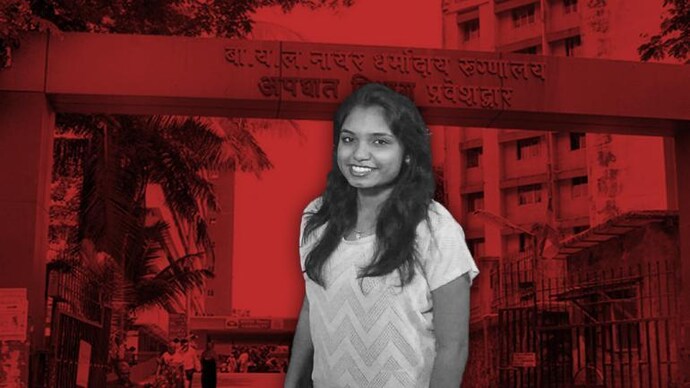
Mumbai: Five years after Dr. Payel Tadvi’s tragic suicide, the prosecution has requested to add the former head of the Department of Gynaecology and Obstetrics at Topiwala National Medical College & BYL Nair Charitable Hospital as an accused. The plea, submitted to the special SC/ST court, alleges that Dr. Chiang’s inaction and conduct contributed to the harassment and mistreatment that ultimately led to Tadvi’s death.
A leading newspaper previously reported that a special court in Mumbai decided to proceed with the trial against three female doctors accused of abetting the suicide of their junior colleague, Dr. Payal Tadvi, a postgraduate medico, in 2019. On May 30, the court rejected the discharge applications filed by the accused, who are out on bail, and imposed a fine of ₹25,000 on each for filing pleas deemed without merit.
Dr. Payal Tadvi, a 26-year-old postgraduate medical student from a tribal community, died by suicide on May 22, 2019, after enduring severe harassment and caste-based abuse by three senior students at the medical college. The trio was arrested in May 2019 and later released on bail, facing charges under the Scheduled Castes and the Scheduled Tribes (Prevention of Atrocities) Act and the Maharashtra Prohibition of Ragging Act.
On November 13, special public prosecutor Pradip D. Gharat filed a plea arguing that Dr. Chiang should be included with the other accused for framing charges. The plea details several incidents allegedly highlighting Dr. Chiang’s failure to act appropriately. It mentions that Tadvi’s mother, Abeda Salim Tadvi, and her niece, Asha Tadvi, approached Dr. Chiang multiple times, raising concerns about the harassment Tadvi faced from her seniors. However, Dr. Chiang reportedly dismissed their concerns, describing such incidents as routine and not requiring intervention.
Dr. Tadvi subsequently informed her mother that the department head had called her and the three seniors to discuss the matter. According to the prosecution, Dr. Chiang’s inadequate response worsened the situation by implicitly supporting the accused seniors. The plea claims Dr. Chiang’s actions encouraged and emboldened the seniors, exacerbating rather than resolving the harassment.
The charge sheet filed by Mumbai Police provides significant evidence of the caste-based harassment Tadvi faced. It includes a suicide note in which she accused the three seniors of using casteist slurs against her, as well as witness statements describing the verbal and physical bullying she endured.
Several witnesses have corroborated these allegations. The prosecution highlighted testimony from five key witnesses implicating the accused in abetting Tadvi’s suicide. One of Dr. Tadvi’s colleagues stated that during a meeting with Dr. Chiang, the three seniors received only a verbal warning. Additionally, requests by Tadvi’s mother and husband to transfer her to another unit were reportedly declined by Dr. Chiang.
According to a Hindustan Times report, the plea stated: “Due to her failure to take proper steps despite being aware of the harassment, the ragging, mistreatment, and torture of the deceased intensified to the extent that she took her own life.”
The prosecution filed the plea after Dr. Chiang’s name surfaced in investigative reports implicating her in enabling the harassment. The college’s ragging prevention committee also reportedly found her accountable for failing to address the harassment. Despite awareness of the situation, the committee’s report noted that Dr. Chiang took no decisive measures to protect Tadvi or address systemic issues in the department.
In the plea filed before Special Judge SM Tapkire, the prosecution argued, “Dr. Ching Ling Chung Chiang must be added as an accused, considering the gravity of the offense, the case’s details, and the relevant legal framework. The charge sheet establishes her role in the events leading to the suicide.”

